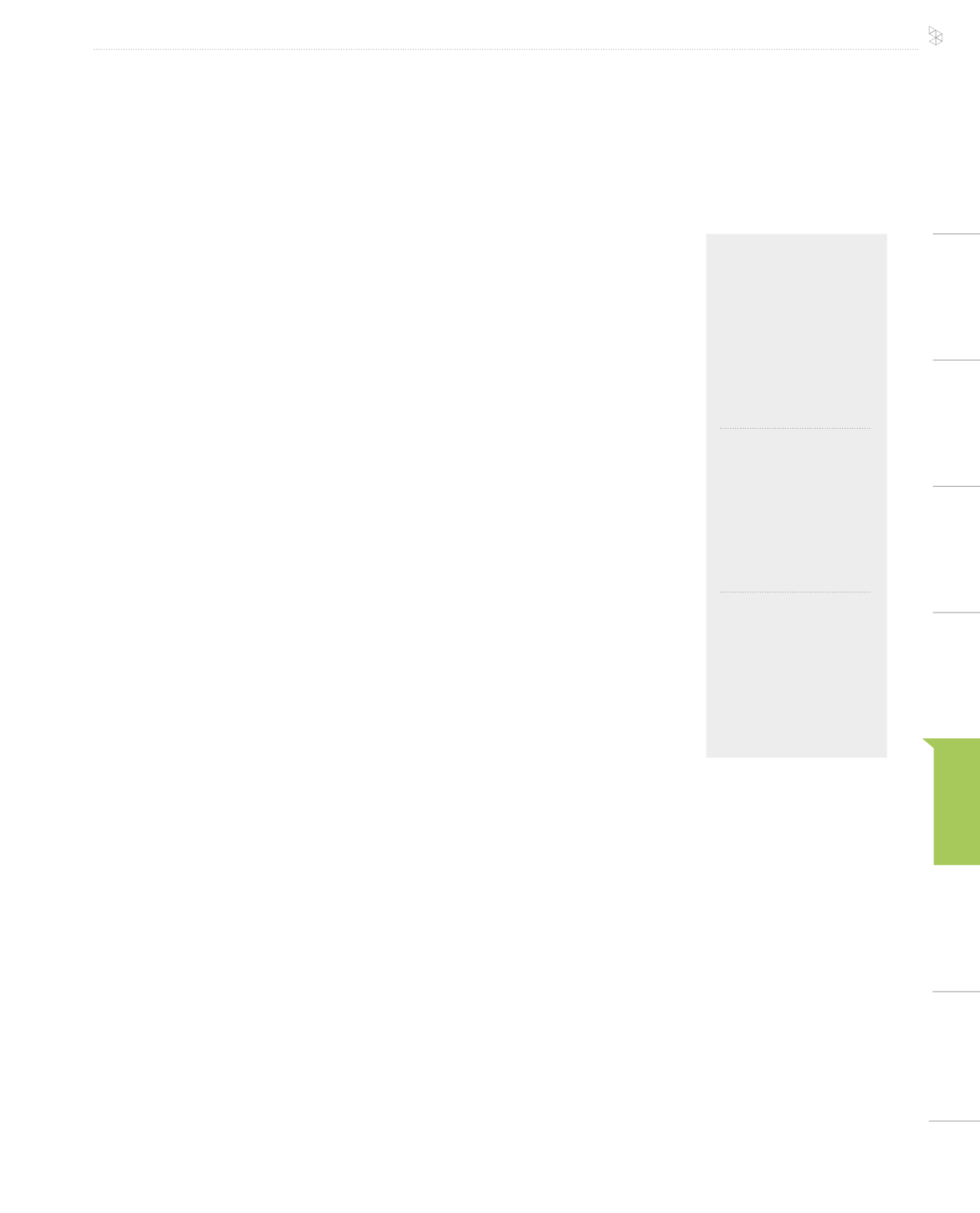

Our Associates
Introduction
PLANET & SOCIETY
Beyond Short-
Term Profits
Nurturing People
Process Excellence
& Governance
PLANET & SOCIETY 59
Axiata Group Berhad | Sustainability & National Contribution Report 2016
National
Contribution Report
PLANET &
SOCIETY
To quantify the carbon reduction achieved from
its initiatives, edotco commissioned independent
research arm SIRIM to conduct a study on
the savings resulting from optimised design.
Specifically, the report measured the reduction
in carbon emission achieved in two countries,
namely Malaysia and Bangladesh. Based on the
findings of the report, the optimisation of tower
design which includes building lighter structures
and the use of optimised site layout designs has
resulted in carbon savings of up to 29% and 25%
for each respective country.
According to the two studies conducted by SIRIM,
the use of optimised tower design in Bangladesh
reduced carbon dioxide emissions per site by
approximately 435 tonnes over a ten-year period
to 1,300 tonnes from 1,735 tonnes using pre-
optimised design. In Malaysia, the use of optimised
tower design could result in CO
2
savings of
approximately 11,720kg to 28,394kg per site from
40,120kg using pre-optimised towers.
Additionally, edotco also started a programme
exploring the use of carbon fibre as alternative
material for its structures. Carbon fibre possesses
a number of properties making it a viable material
as it is 70% lighter than steel, 40% lighter than
aluminium, has a high strength-to-weight ratio and
corrosion resistance, as well as a low mass. Carbon
fibre is an adaptable material that will incur lower
installation costs and result in a 50% reduction in
the foundation requirements.
The reduction in materials usage will be carbon
positive, and result in significant emissions
reduction if carbon fibre is found to be a feasible
alternative.
Disaster Management and Response
Our operations are located in countries that
experience a number of natural disasters including
earthquakes, floods and tsunamis which have
significant impact on the lives of the local
population. As a Group, we have decided to
leverage on our collective strength and on our role
as a communications provider to make a bigger
difference in the area of disaster relief, and have
initiated a Group-wide Disaster Response Plan
(DRP). The DRP is also in linewith our commitments
as a signatory to the GSMA’s Human Connectivity
Charter (HCC), which we helped found in 2015. The
DRP enhances coordination between our OpCos,
and strengthens partnerships between ourselves
and the government and humanitarian sector.
Business Continuity Management
The Group has implemented a Business Continuity
Management (BCM) plan, which dictates the
processes of recovering critical business processes
and the continuity of day-to-day services. Axiata’s
BCM policy contains principles and guidelines that
ensure coordinated and consistent deployment of
BCM throughout the Group. It contains three key
principles:
• Critical business functions shall be maintained
or recovered in a timely manner in the event
of a disruption to minimise operational,
financial, legal, reputational and other material
consequences.
• BCM shall encompass crisis management
including emergency response, disaster
recovery for IT and network systems and
contingency planning.
• Each subsidiary is to develop and put in place
a comprehensive BCM framework appropriate
to the regulatory requirements, nature, size
and complexity of its respective business
activities based on key principles set out in
the Axiata BCM Policy.
Corporate Responsibility
The Axiata Group discharges its corporate
responsibilities (CR) both as a Group entity and
as individual OpCos. All efforts are focused
on empowering and enriching lives within our
communities and mainly concentrated on the
areas of education, environmental protection,
health and sports.
Optimised site designs
have resulted in
Carbon
Savings
of up to
29%
and
25%
respectively for Malaysia
and Bangladesh
edotco started a
programme exploring
the use of
Carbon
Fibre
as alternative material
for its structures
As a Group, we
have implemented a
Group-wide
Disaster
Response
Plan (DRP)









